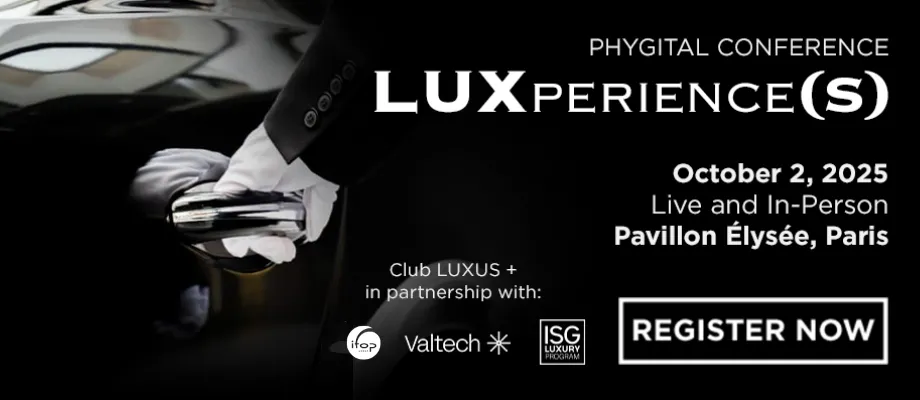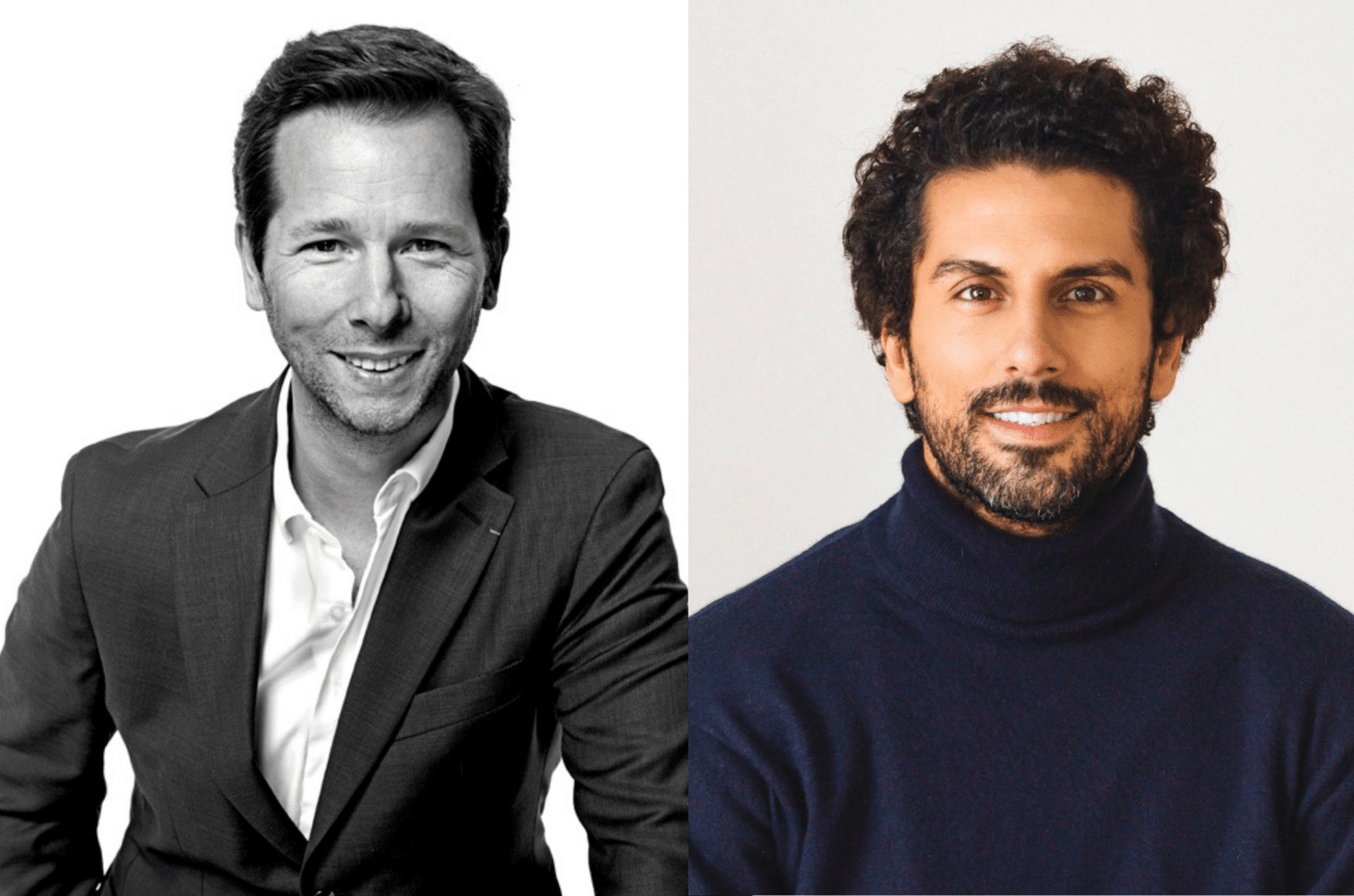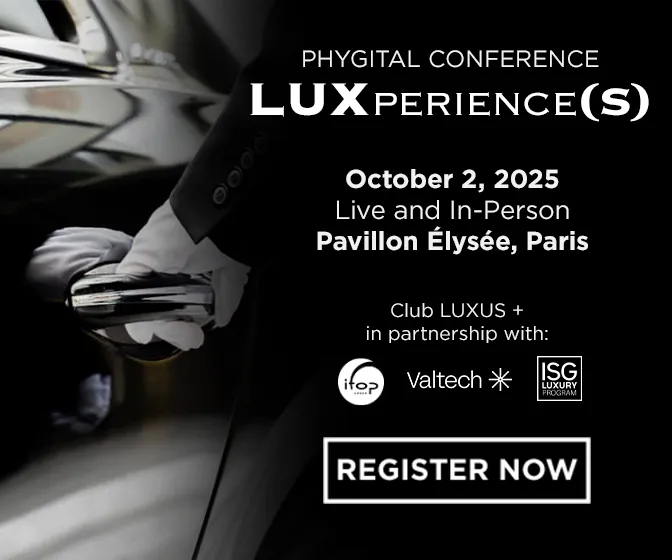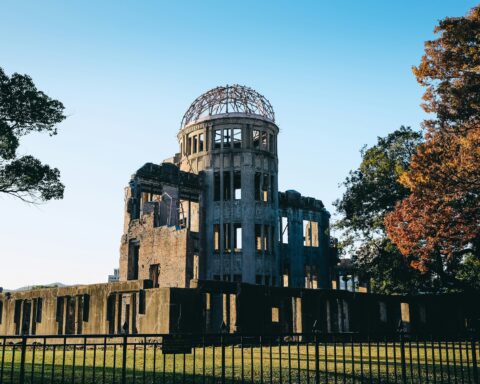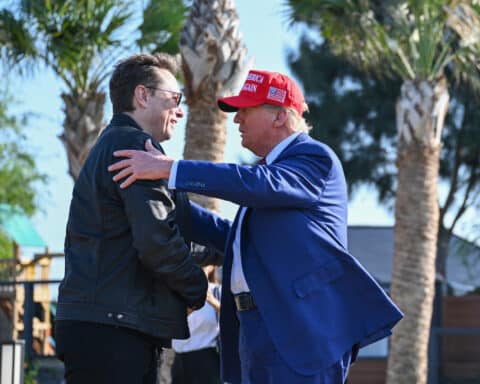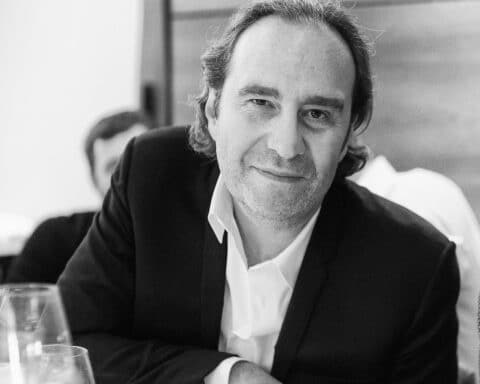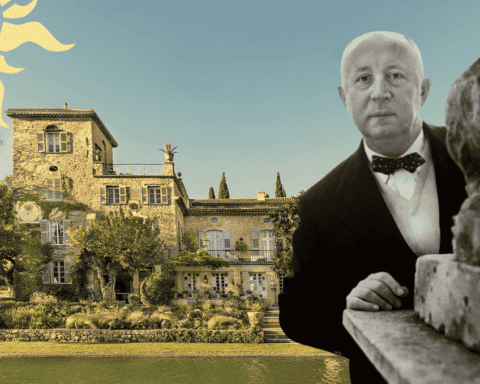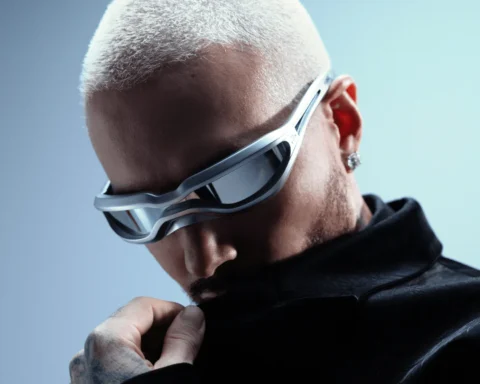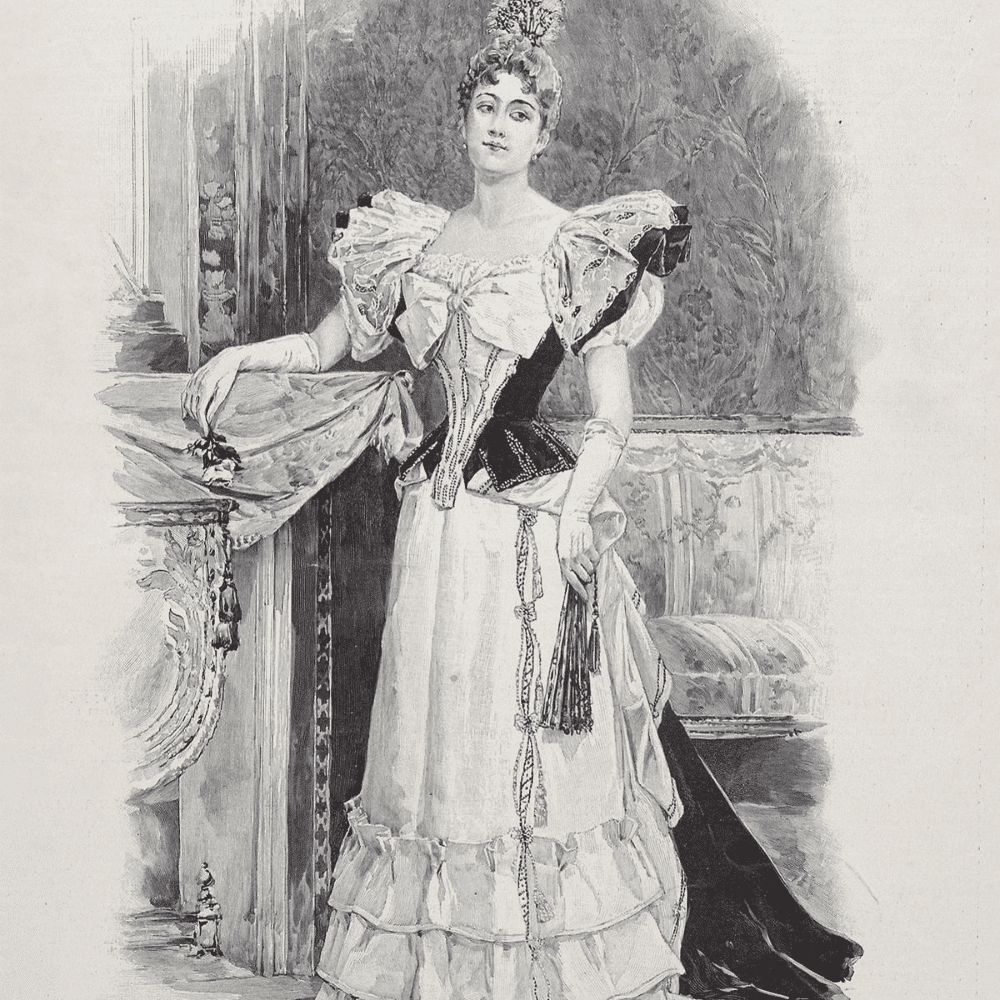Jonathan Anguelov, fondateur et ex-pdg d’Aircall, licorne de la téléphonie d’entreprise devenue centaure, était, le 30 avril dernier,invité des déjeuners du Chinese Business Club, premier club d’affaires de France fondé et dirigé par Harold Parisot. Entretien croisé entre deux figures de l’entrepreneuriat français.
Depuis 2012, Harold Parisot, fondateur et président du Chinese Business Club, organise une quinzaine de déjeuners par an à destination de 130 sociétés membres. Un club qui, comme son nom ne le laisse pas présager, est désormais tourné vers l’écosystème hexagonal. Chaque mois, ce premier club d’affaires de France convie au cours de repas, plusieurs typologies d’invités d’honneur, notamment des personnalités politiques (Emmanuel Macron, Nicolas Sarkozy, Albert de Monaco…), des grands patrons du CAC 40 (Total, L’Oréal, Accor, Club Med, Pernod Ricard) ainsi que des entrepreneurs à succès de la French Tech comme Blablacar, Qonto, Backmarket, Doctolib et maintenant Aircall.
Fondée en 2014, Aircall est une entreprise de téléphonie d’entreprise devenue sept ans plus tard, licorne, après une valorisation de plus d’un milliard d’euros. Elle a ainsi passé le cap des 100 millions de chiffre d’affaires en 2022, faisant d’elle un des premiers centaures de la French Tech. Invité à un déjeuner du Chinese Business Club, le fondateur et ex-dirigeant d’Aircall, Jonathan Anguelov, souhaitait bâtir une entreprise internationalisée tout en restant française de cœur. Aujourd’hui c’est chose faite puisque 85% du chiffre d’affaires de l’entreprise est réalisé en dehors de France, en particulier Outre-Atlantique.
LUXUS PLUS : Harold Parisot, vous êtes à l’origine de ce nouveau déjeuner du Chinese Business Club au sein de l’Hôtel Intercontinental Paris Le Grand. Pourquoi avoir choisi Jonathan Angelov comme invité d’honneur ?
Harold Parisot : Il faut voir le réseau du Chinese Business Club comme un accélérateur d’opportunités professionnelles. Le carnet d’adresse est extrêmement important pour développer votre business de façon exponentielle. Mon but est de faire intervenir comme invités d’honneur, des entrepreneurs porteurs de magnifiques success stories. Jonathan Angelov en est pour moi l’exemple parfait dans le sens où c’est “un ancien gamin de la DDASS qui a réussi à monter une licorne, une start-up qui est valorisée plus d’un milliard d’euros. Un effet Wahou garantie. Et les membres comme les participants du club veulent pouvoir rencontrer l’invité d’honneur et discuter avec lui. Comme vous le savez, au club, c’est assez éclectique : il y a des sénateurs, des députés, des ambassadeurs, des sportifs professionnels et même des humoristes. Et personne ne peut rester de marbre devant d’aussi belles réussites. J’en suis le premier admirateur.
L+ : Jonathan Anguelov, pouvez-vous en quelques mots nous présenter Aircall ? J’ai cru comprendre que vous n’étiez pas seulement dans le cloud mais aussi dans l’intelligence artificielle, technologie dans laquelle vous avez été parmi les pionniers…
Jonathan Anguelov : Notre grande innovation chez Aircall était au départ de faire communiquer la téléphonie d’entreprise avec son système d’information (CRM et autres logiciels de service client). Il y a dix ans, cette intégration n’existait tout simplement pas, au point que bien souvent le service client était dans l’incapacité de connaître le numéro de téléphone des appels entrants. Nous voulions dès le départ simplifier tout le processus et créer un système de téléphonie où la seule question qui vaille ne serait plus quel est votre numéro mais quel est votre problème ? Partir sur cette base nous a permis de créer davantage de confiance tout en permettant aux équipes de se concentrer sur la seule personnalisation de leur argumentaire commercial. Ainsi, Aircall a rendu les appels des entreprises plus productifs, plus rapides tout en améliorant l’expérience client au global. Parce que nous voulions avant tout simplifier le quotidien des équipes commerciales et des centres d’appel, nous avons misé sur l’intelligence artificielle dès 2019 afin de permettre la retranscription et le résumé des appels téléphoniques. Aujourd’hui, Aircall cherche toujours à simplifier la vie de ses clients, de les rendre plus productifs et meilleurs jour après jour et les outils analytiques permettent clairement aux équipes de progresser sur cette voie.
L+: Quelles analyses Aircall et son IA peuvent faire ressortir des conversations téléphoniques ?
JA : Certaines fonctionnalités ont été réalisées en direct et d’autres au moyen d’intégrations, c’est-à-dire via d’autres sociétés qui s’intègrent à nous, comme Attention.tech. L’idée derrière ça est d’être en mesure, à la fin de l’appel, de répondre à des questions telles que “est-ce que la personne était attentive ? Est-ce qu’elle a posé les bonnes questions ? Est-ce que j’ai personnellement bien répondu à ces questions ? Quel était le ton de sa voix ? Il faut une qualité sonore très supérieure afin de retranscrire avec précision une émotion dans le ton d’une voix, ce que les américains appellent le “sentiment analysis”.
L+: Comment avez-vous réussi à gérer cette hyper croissance soudaine ?
JA : Au moment du lancement de Aircall, le besoin était clairement identifié et particulièrement prégnant : nos clients le comprenaient, en rêvaient depuis des années, mais surtout, ils nous ont épaulé afin de faire évoluer notre proposition. C’est ce besoin qui nous a motivé à prendre le temps nécessaire pour délivrer un produit de première classe. Devant le succès rencontré, nous sommes passés de zéro à un million d’euros de chiffre d’affaires en moins de 18 mois. L’année d’après, nous étions à 3 puis 9 millions l’année suivante, avant de passer à 18 puis 30, puis 50, puis 80, puis 120. Maintenant nous sommes à plus de 150 millions d’euros à date, et nous projetons de finir l’année autour de 200 millions d’euros.
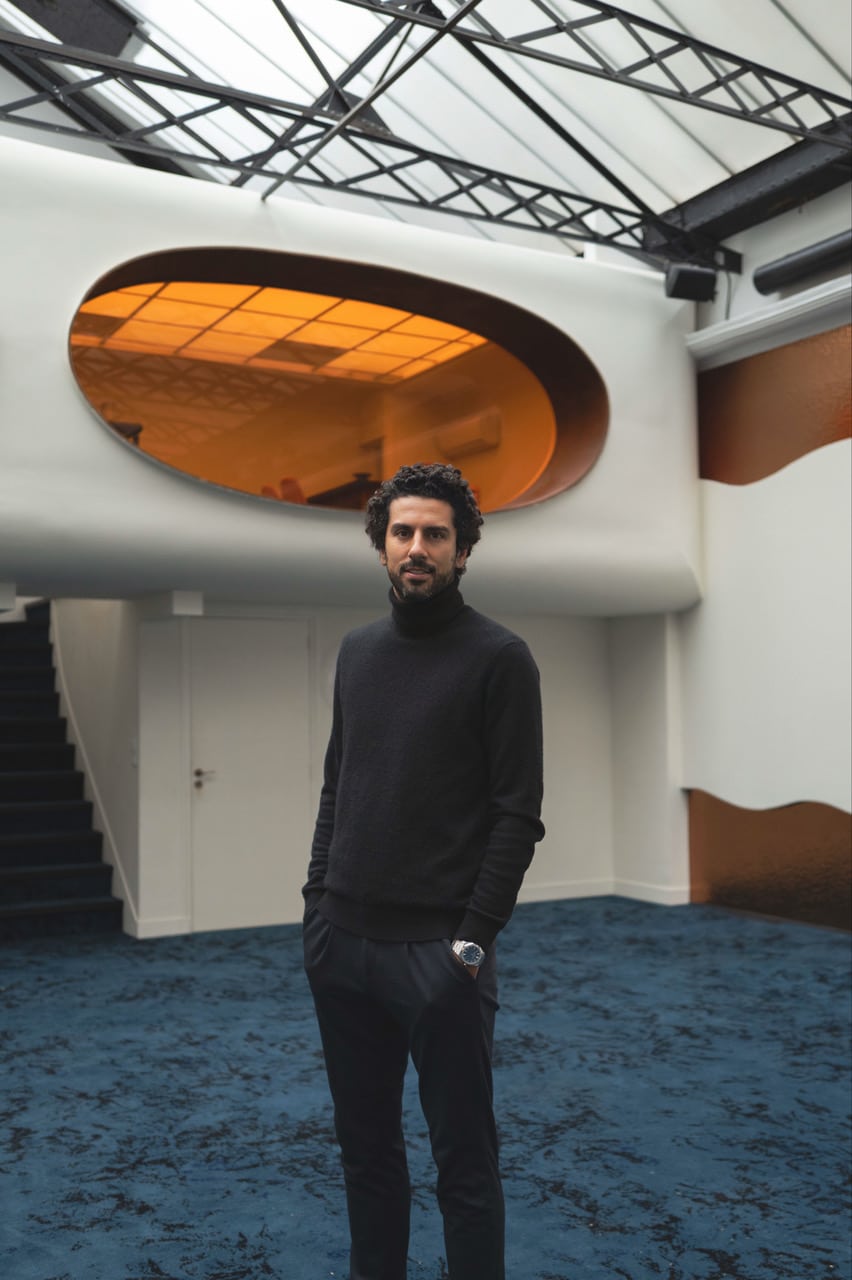
L+ : Comment expliquez-vous la réussite d’Aircall à l’international et plus particulièrement aux Etats-Unis, devenu un de vos principaux marchés ?
JA : Une des clés de notre succès a été notre rapidité à nous exporter. D’ailleurs, à notre grande surprise, notre premier client était américain. Ça a été un vrai déclic dans le développement de l’entreprise. Nous avons d’abord ouvert un bureau à San Francisco en 2015 qui a été transféré à New York l’année suivante. Mon associé Olivier est parti vivre outre-atlantique pendant 5 ans avec pour mission d’y créer un important bureau. Au plus haut, nous étions plus d’une centaine de personnes dans notre siège new yorkais, essentiellement l’équipe commerciale ainsi que les fonctions support comme la finance et le juridique. Si vous voulez réussir dans ce business, c’est important de réussir aux Etats-Unis. Fin 2023, nous y avons donc déménagé le management et le COMEX, afin de préparer notre introduction en bourse. Pour gérer la passation suite à mon départ et celui de mon associé, nous avons embauché un PDG américain, Scott Chancellor. Ce dernier a comme objectif de développer Aircall, à l’international et plus particulièrement de poursuivre la croissance sur le marché américain, qui, aujourd’hui représente 35% de notre chiffre d’affaires.
L+ : Apparemment, Aircall a essaimé beaucoup de profils entrepreneurs, soit des ex-employés qui ont lancé leur propre start-up. Aircall serait-elle une académie de l’entrepreneuriat ?
JA : Nous avons en effet constaté que 90% des 30 premiers employés d’Aircall étaient devenus entrepreneurs. Il y a deux-trois ans, nous avons donc créé la Aircall Mafia, en référence à la Paypal Mafia, qui regroupait les premiers dirigeants de Paypal dont Elon Musk faisait partie. C’est très révélateur de notre culture d’entreprise : nous accordons de la liberté à nos collaborateurs et nous offrons une chance aux jeunes. Nous n’hésitons pas à partager nos craintes et nos doutes, ce qui est assez rare dans un monde de la tech essentiellement médiatisé autour des levées de fonds. Globalement dire d’une startup qu’elle a levé “X millions” revient à dire que le produit est incroyable et disruptif. Or, pour nous, ça ne suffit pas : il faut être transparent sur le chiffre d’affaires et nous l’avons toujours été. Pour moi, c’est même une erreur française d’avoir fait du montant levé le critère d’entrée au Next 40 : on ne juge pas une entreprise au montant qu’elle a levé mais à sa rentabilité et à son produit. Cette transparence jusque dans le développement de nos produits a créé une génération d’entrepreneurs, des personnes qui savent ce qui va, ce qui ne va pas, bref qui savent où ils vont. Aujourd’hui, cette Aircall Mafia représente plus de 15 entreprises dans le monde et je suis au board d’un certain nombre d’entre elles.
L+ : D’où vous vient cette passion précoce pour l’immobilier, domaine dans lequel officie votre nouvelle entreprise, Aguesseau Capital ?
JA : N’ayant aucun parachute quel qu’il soit, je me suis vite passionné pour l’immobilier. Très tôt, j’ai commencé à acheter des biens dans Paris, essentiellement des studios et des deux pièces. Mon associé actuel – Gaétan Chebrou – faisait la même chose de son côté. Nous nous sommes concertés et nous nous sommes dit pourquoi ne pas faire les choses ensemble en créant une foncière. L’idée d’Aguesseau Capital est née en vendant l’ensemble de nos biens respectifs pour acheter notre premier hôtel, Maison Barbès, qui a été un franc succès. Nous avons ensuite enchaîné avec plus de 35 opérations sur des immeubles parisiens. Au point qu’aujourd’hui, nous disposons de plus de 75 millions d’euros d’immobilier dans la foncière. En 2023, devant la croissance d’Aguesseau Capital nous commencions à éprouver certaines difficultés pour gérer de front la foncière et Aircall. Mon associé venait de revenir en Europe. Moi, je ne me voyais pas partir aux Etats-Unis. Assez naturellement, je me suis dit qu’après 18 ans à la tête d’Aircall, c’était le moment propice pour passer le flambeau et de pouvoir concilier mes deux passions que sont l’immobilier et la tech. Or, Aircall pouvait, au vu de la taille de la société et de son stade de développement, évoluer en autonomie tandis que Aguesseau Capital avait vraiment besoin de moi. Malgré ce changement, je reste très impliqué dans le monde de la tech. Je conserve chez Aircall une fonction de conseil ainsi que mes parts. Par ailleurs, je suis au board d’une dizaine de sociétés, je suis business angel dans plus de 35 pépites de la tech et occupe la fonction de venture partner dans le fonds d’investissement Blast. L’idée est de continuer à acquérir des biens et de créer des hôtels, dans la mesure où la vision d’Aguesseau Capital est d’acheter des hôtels et de les exploiter. Nous allons également créer un fonds d’investissement au sein d’Aguesseau Capital afin de permettre aux personnes désireuses d’investir dans l’immobilier à nos côtés de le faire.
L+ : Jonathan Anguelov, quelle est votre vision de l’hôtellerie ?
JA : Chez Aguesseau Capital, nous voulons proposer de l’hôtellerie 4 étoiles accessible. Nous pensons qu’aujourd’hui, un établissement 4 étoiles représente un positionnement haut de gamme qui a longtemps été inaccessible à la classe moyenne parce que trop souvent implanté dans des quartiers prestigieux et centraux. Nous pensons au contraire qu’un 4 étoiles n’a pas besoin de se situer dans les quartiers les plus chers d’une ville : il peut tout à fait trouver sa place dans un quartier en voie de gentrification comme Barbès. Entre-temps, nous avons ouvert la maison du Moulin Vert dans le 14ème arrondissement, à côté d’Alésia. Nous sommes en train d’ouvrir un hôtel dans le 20ème, à côté des Buttes Chaumont, un autre à proximité du Père Lachaise. Nous sommes aussi en train d’ouvrir un établissement plus haut de gamme, Maison Iéna, rue Auguste-Facry, rue adjacente à l’avenue d’Iéna. Nous y proposerons des suites très haut de gamme, dans un esprit palace 5 étoiles. Je pense que les belles choses doivent être accessibles d’où ces hôtels situés à 5 à 10 minutes des quartiers les plus chics destinés à une population semi-professionnelle qui n’a pas 500 ou 600 euros à mettre dans une nuit d’hôtel.
L+ : Quelle est la place du réseautage pour passer de la téléphonie à ce milieu de l’hôtellerie ?
JA : Lorsque j’ai rencontré Harold et que j’ai participé à certains de ses événements, j’ai découvert la force de discuter et de rencontrer des personnes qui n’ont pas uniquement les mêmes problématiques ou les mêmes types de société que moi ou qui sont à des stades de travail équivalents du mien et même parfois à un niveau plus jeune. Etre capable de s’entraider, de se présenter les bonnes personnes, d’avancer ensemble, et, avec comme objectif, de partager aussi nos doutes et nos conseils sur les différentes situations qu’on peut rencontrer lorsqu’on est un entrepreneur ou lorsqu’on est un patron d’une ETI, d’une PME, c’est vraiment une force. Je trouve que c’est ce que Harold Parisot a réussi avec le Chinese Business Club, à savoir rassembler des personnes de tous horizons, que ce soient des journalistes, des politiques, des hommes d’affaires ou des personnalités de la tech.
HP : Pour compléter la réponse de Jonathan, j’ajouterais que ce qui fait la force d’un réseau, c’est un réseau qui est diversifié. Et je pense que plus la liste des participants est éclectique, plus cela crée une vraie valeur ajoutée.
L+ : Quelle continuité voyez-vous entre l’hôtellerie et Aircall ?
JA : Ce que je vois surtout, c’est que l’hôtellerie est un monde vieillissant, un peu comme la téléphonie d’entreprise. Ce sont des business qui arrivent à maturité. Ca me rappelle quand la téléphonie d’entreprise se résumait à un poste fixe noir posé sur le bureau. Quand ça sonnait, il y avait – dans le meilleur des cas – un numéro qui s’affichait et, dans le pire des cas, on n’avait même pas un numéro. En bref, la seule fonction que ce téléphone avait, c’était globalement le bip. Pour l’hôtellerie, notamment à Paris , c’est le même constat. Pour s’en convaincre, il suffit de voir les hôtels sociaux parisiens (qui réalisent de l’hébergement d’urgence, ndlr), ainsi que les hôtels entrée de gamme (1 ou 2 étoiles) qui n’ont pas été rénovés depuis 20-30 ans. Cela ressemble au mieux à des chambres d’hôpital et au pire, à des squats. On les reconnait à leur carrelage blanc et leurs lumières blafardes. Comment peut-on être dans la ville la plus touristique du monde et accepter de laisser des bâtiments comme ça à l’abandon ? J’ai envie de rénover toutes ces bâtisses magnifiques oubliées par le temps et de leur restituer leur beauté et c’est ce à quoi nous nous employons chez Aguesseau Capital. Pour nos hôtels, nous avons refait les planchers, l’isolation… Nous voulons des biens en mesure de traverser le temps et nous voulons offrir à Paris des logements à la fois accessibles, décents et esthétiques, surtout d’un point de vue décoratif.
L+ : Aircall a la particularité d’être une entreprise française internationalisée avec une forte empreinte américaine. Est-ce justement vers ce marché que vous, Harold Parisot, souhaitez porter le Chinese Business Club, sachant que vous souhaitez vous départir de l’idée d’un club d’affaires exclusivement dédié au marché chinois ?
HP : Pour moi, le Chinese Business Club est un club d’affaires à l’anglo-saxonne, autrement dit, dont nos membres et participants attendent avant tout un retour sur investissement. Nous avons un taux de renouvellement annuel des adhésions des sociétés membres de 90%. Non, je n’essaye pas spécialement de me rapprocher particulièrement des États-Unis : j’essaye juste de dé-siniser le Club, sans en changer le nom et sans non plus tourner le dos aux Chinois. Il y a en France cinq fois moins d’investissements et de touristes chinois en 2023 qu’en 2019. Raison pour laquelle je n’ai pas changé la cible mais je l’ai élargi à tout ce qui est start-up, TPE, PME, ETI, entrepreneurs… L’idée est de dire à tous ces jeunes entrepreneurs que si leur entreprise fonctionne bien, peut-être qu’avec un bon réseau et un bon carnet d’adresses, leur business se développera de façon exponentielle.
L+ : Nous l’avons vu, Aircall est une figure emblématique de la French Tech. D’autant plus emblématique qu’elle est une des rares sinon la seule, à être centaure au sein du Next 40. Vous avez notamment Frédéric Mazzella de chez Blablacar comme membre. Quel rapport entretient le Chinese Business Club justement avec la French Tech ?
HP : Je vous confirme que Frédéric Mazzella, fondateur de Blablacar, participe à quasiment tous les déjeuners du Chinese Business Club. Ensuite, BPIFrance le Hub, est membre du Chinese Business Club depuis plusieurs années. Quant au lien que nous entretenons avec la French Tech, il est assez étroit puisque Roxanne Varza, la directrice de Station F, qui a été littéralement bluffée par le positionnement de notre club, propose à quelques entrepreneurs et startups de Station F de participer gracieusement à un déjeuner test, à l’issue duquel ils sont libres d’adhérer au club ou pas.
L+ : Qu’est-ce que vous répondriez à un entrepreneur de start-up ou de scale-up qui hésiterait à adhérer au Chinese Business Club, que ce soit d’un point de vue business ou culturel ?
HP : Pour être totalement transparent, je doute qu’il y ait d’autres lieux en France où, lorsque vous entrez dans la salle, il y ait autant de milliardaires français réunis autour de la table. A chaque déjeuner, j’ai les Bouygues, les Dassault, les Courtin Clarins ou encore les Bolloré. Tous ces contacts et investisseurs potentiels sont des personnalités qui sont d’ordinaire considérées comme inaccessibles ou du moins très sollicitées. Ce ne sont que des décideurs. C’est ça qui vaut de l’or, parce que les contacts que vous rencontrez, c’est oui ou c’est non, mais au moins, c’est un gros gain de temps.
JA : Je rebondis là-dessus dans la mesure où je fais partie de la cible. Le Chinese Business Club est une bonne manière de trouver un produit comme de le confronter à un marché. Normalement, lorsqu’on est une entreprise, on a quelque chose à vendre. Or, quoi de mieux pour un entrepreneur que d’accéder aux dirigeants de grands groupes. Signer ses premiers grands comptes constitue une étape décisive dans le développement d’une entreprise mais qui reste difficile au début.
Les déjeuners du Chinese Business Club reviennent le 24 juin avec comme invité d’honneur, une autre figure de la French Tech : Eric Larcheveque. Fondateur de la licorne Ledger, ses portefeuilles numériques sécurisés lui ont valu le respect de la communauté crypto-Blockchain. Avec l’émission “Qui Veut Etre Mon Associé”, diffusée sur M6, il est devenu une personnalité connue du grand public. Après Antony Bourbon, il est ainsi le deuxième membre du jury de l’émission de téléréalité basée sur l’entreprenariat à intervenir aux déjeuners du Chinese Business Club.
Lire aussi > Harold Parisot reçoit Tony Parker au Westin Vendôme, à Paris, le 2 février 2024
Photo à la Une : © Chinese Business Club/Aircall

